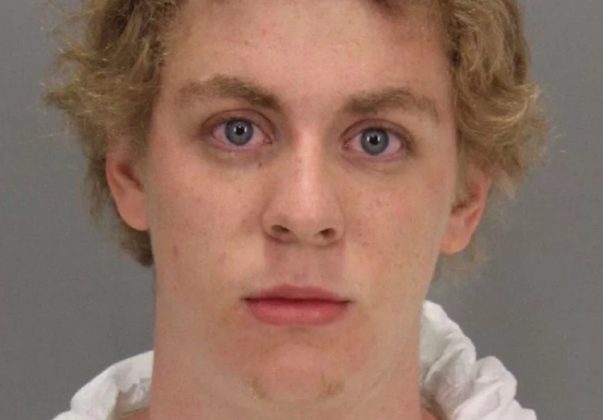Year after year, we introduce poisoned boys into the cauldron of adulthood and watch them wreak havoc.
The outrage has reached a fever pitch over the Stanford swimmer’s convicted rapist’s unusually light sentence—six months in county jail, or as few as three with good behavior—for the brutal rape of an unconscious young woman behind a dumpster.
The outrage is not without good reason. Turner was convicted of a felony that carries a potential 14 years in prison. But Judge Aaron Persky determined that Turner deserved only a fraction of that sentence because jail would have a “severe impact” on the convicted rapist. I’m pretty sure that’s kind of the point, but I digress. After all, it’s quite possible we should be celebrating the fact that Brock Turner will spend three to six months more in jail than 97% of all rapists. Most don’t even face an accusation.
What’s truly remarkable about this case is its near-complete illustration of how our culture tolerates and even encourages rape.
And it all starts by defining rape so narrowly that all but the most violent, egregious behavior is something else. Gray rape, perhaps. In a letter to the judge, Turner’s father could not or would not bring himself to describe his son’s actions as rape. Turner’s high school friend Leslie Rasmussen epitomized this approach in her letter to Judge Persky:
But where do we draw the line and stop worrying about being politically correct every second of the day and see that rape on campuses isn’t always because people are rapists…This is completely different from a woman getting kidnapped and raped as she is walking to her car in a parking lot. That is a rapist. These are not rapists.
Of course, 86% of rapes are committed by someone known to the victim, not by some anonymous kidnapper. But this goes deeper than the persistent myth that most rapists are strangers lurking in dark parking lot. Rasmussen and, if studies are to be believed, a sizeable segment of the population, doesn’t see the act of penetrating an unconscious person as rape at all. Especially if, as Rasmussen writes, “there is absolutely no way [the offender] went out that night with rape on [his or her] mind.” If it’s not first-degree rape with a deadly weapon, it’s not rape at all. It’s something else.
And whatever that something is, it’s just not that big of a deal.
That’s why Rasmussen can dismiss concerns about Turner’s behavior as mere political correctness. It’s why Turner’s father can dismiss his son’s behavior as the unfortunate consequence of a Midwestern boy straying too far from home. It’s why Turner’s father can write, even now, “He has…never been violent to anyone including his actions on the night of January 17, 2015.”
And it’s why Judge Persky can say, “I think he will not be a danger to others.” Because in the Judge’s mind, Brock’s behavior was far more “youthful shenanigan” than “devastating attack on the body of another human being.”
The collective response of Brock’s father, his childhood friend, and the judge to Brock’s rape of an unconscious woman behind a dumpster? ¯\_(ツ)_/¯
Despite the attempts to play off this kind of behavior as unserious, the consequences for women are anything but.
Boys are shaped by their environment. The views of their friends and parents inform their ethical worldviews. Indeed, one of the leading indicators that someone will commit sexual assault is whether or not their friends (ahem, Ms. Rasmussen) accept rape myths like the one mentioned above.
Many call this whole phenomenon “rape culture.” I typically don’t, mostly because I find the term so redundant as to be misleading. There has never been a culture in the United States that is not a “rape culture.” Our tolerance of sexual violence isn’t mere subculture or an isolated collection of behaviors. It’s deeply intertwined with and enmeshed in everything from the justice system to university culture to courtship rituals (men pursue, women play “hard to get”) to movies (I’m dating myself, but I remember when Josh Hartnett was raped in 40 Days and 40 Nights and no one noticed) to music to sports culture to language, to…yeah, it’s everything and everywhere.
Whatever you call it, this culture that made Brock Turner was making just another cog—an inevitable product of our choices to sit idly by and acquiesce to what the world teaches adolescent boys about girls, women, sex, and consent. It is poison. And year after year, we introduce poisoned boys into the cauldron of adulthood and watch them wreak havoc.
The nationwide response to Turner has sadly papered over the cold truth, only barely hidden out of plain sight: There are hundreds of thousands of Brock Turners out there. The fury sweeping the Internet is indeed evidence of cracks in the system. But that system resiliently remains in place and will continue to do so until we make a choice to teach our boys something different. The criminal justice system can’t erase that night. But we can do better in the future by actively dismantling the cultural norms that made it possible.
Tahir Duckett is the Founder of ReThink, a DC-based non-profit that is working with adolescent boys to end rape. Find him on Twitter at @TahirDuckett.
Other Links:

